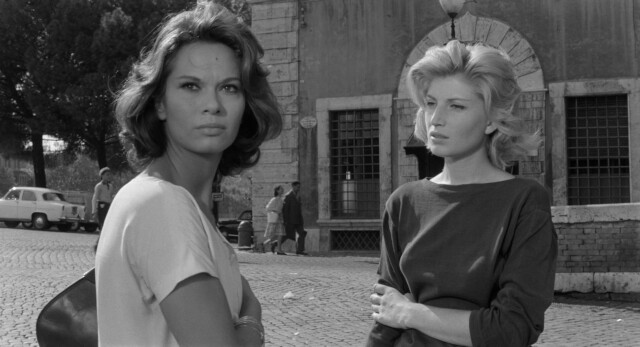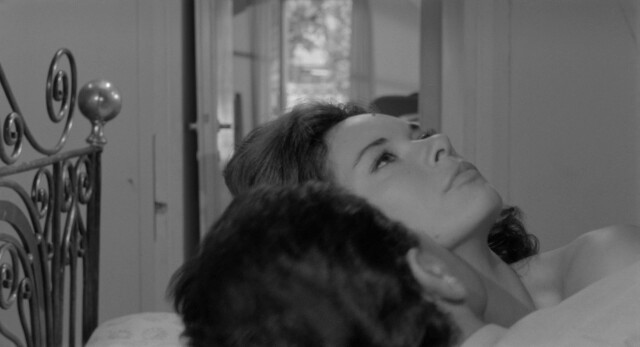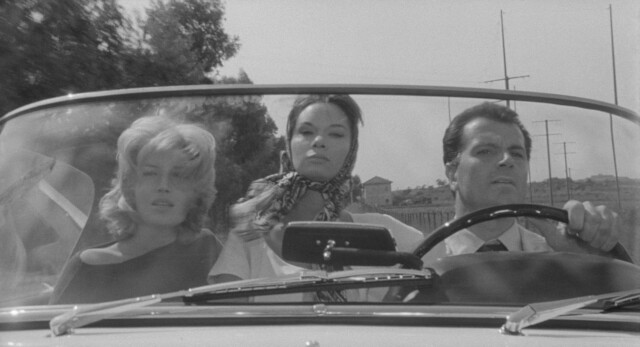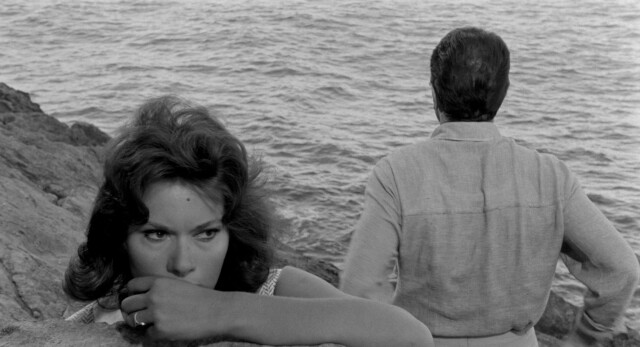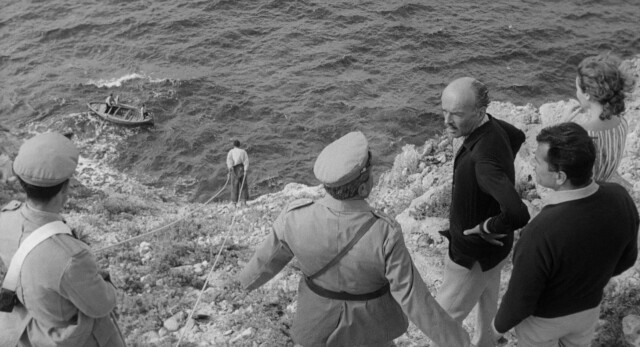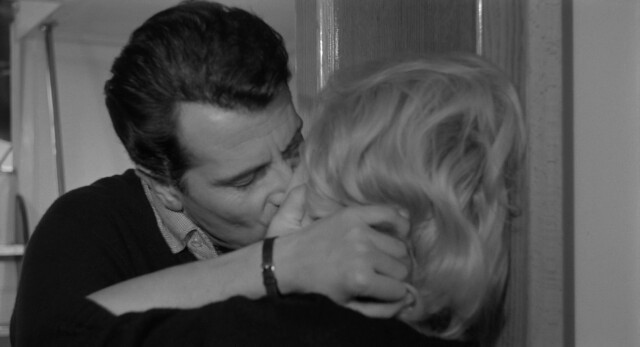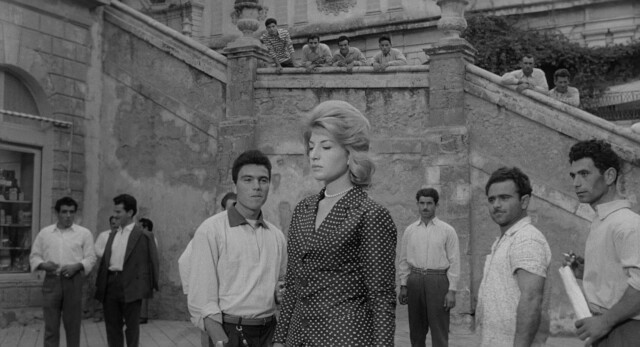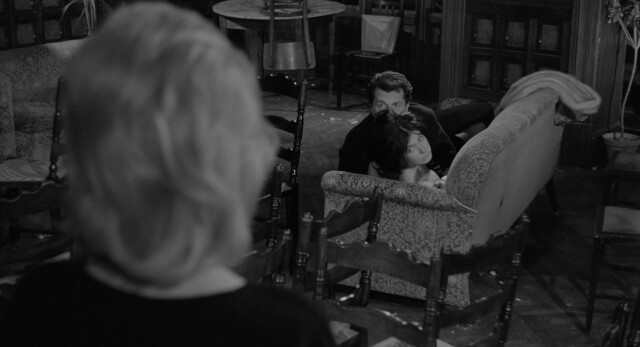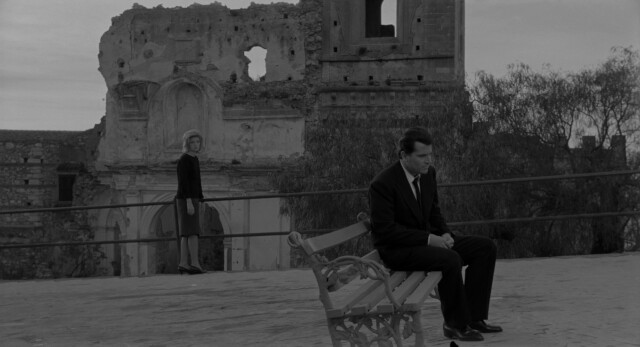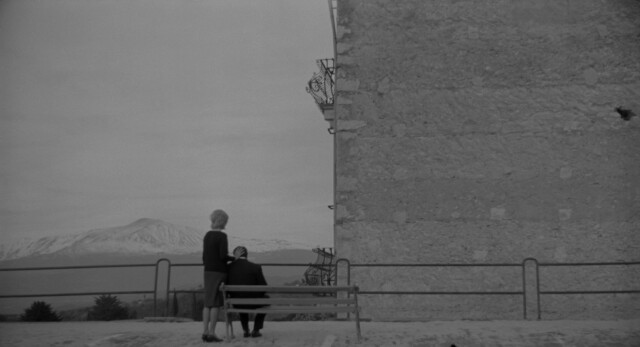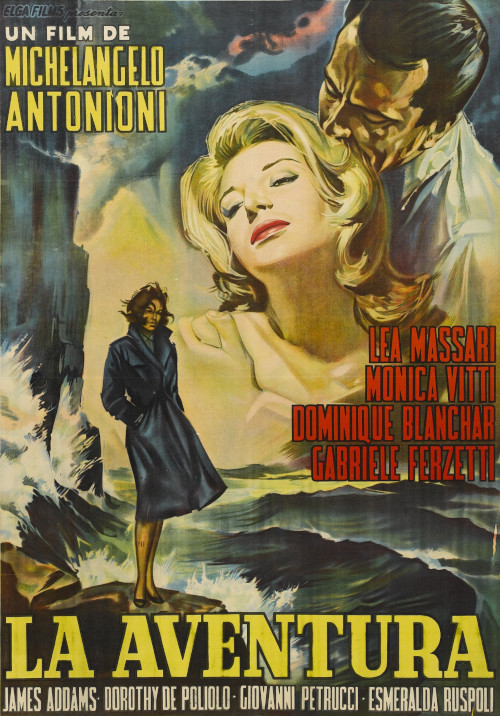
Antonioni and the cast of L'Avventura must have been mortified to witness the cat-calls and slow hand-claps with which the public greeted the film during its premiere at the Cannes Film Festival in 1960. Four months later it was awarded a prize as the most original and imaginative entry to be shown at the London Film Festival. Antonioni was to have been present but he was detained in Rome after the Italian authorities seized the film and banned it for being obscene.
When L'Avventura opened in the United States, Time magazine called it a 'nightmarish masterpiece of tedium'. Insecure exhibitors, fearing that they might have a loser on their hands, quoted the preview in their front-of-house publicity but prudently omitted the last two words.
Therein lie the mixed blessings of L'Avventura, despised by many as being boring, pretentious and obscure but admired by others for its creation of a unique form of film narrative.
When speaking about neo-realism, Antonioni commented that in the Fifties the social and economic realities of war-devastated Italy had, in effect, been normalized. Referring to Bicycle Thieves (1948) as a representative film of the period, he went on to say that 'the problem of the bicycle had been eliminated'. It was no longer necessary to show the conditions which had given rise to the theft, and the time had now come for a less sentimental, more objective treatment of post-war Italian life.
Nothing much happens in L'Avventura, at least not in the sense of a conventional plot - a series of actions occurring in certain places over a period of time and leading to some kind of resolution - for the film is more about the characters' states of mind than about what they actually do.
The disappearance of Anna during a short boating holiday with friends is ultimately of minor importance. Midway through the film she is virtually forgotten and, in fact, is never found. However, the event of her disappearance acts as something of a catalyst, serving to bring together her lover Sandro and her friend Claudia. The characters in the film are like somnambulists, moving lethargically through the spaces they occupy, bored with their friends, themselves and life. Actions occur almost at random and sex serves as a kind of anaesthetic, blunting betrayal, disillusionment, boredom and loneliness.
Distressed by the fissures in her affair with Sandro, Anna explains to him that she has become accustomed to his long absences even though she loves him. She tells Claudia 'When you think you're on your own you can think what you like, how you like. When he's there before you that's all there is'. Sandro is incapable of understanding Anna's feelings; nor is he able to act out of anything other than self-interest as in the last scenes of the film when, having only just begun an affair with Claudia, he makes love to a prostitute. The attraction he feels for Claudia (and she for him) seems somewhat inopportune given the possibility that their mutual friend may have committed suicide only a few hours earlier.
Giulia, another friend, can only utter banalities of which her husband Corrado is invariably critical. She submits to a young artist's seductive attentions, less because of her attraction to him than out of her desire to hurt Corrado. The wife of Sandro's employer is totally insensate and allows herself to be groped by one of the guests on the boat, barely paying any attention to the hand beneath her nightgown.
A sense of detachment pervades the film. The characters seem isolated from their environment and from one another and this feeling of detachment extends itself to the spectator because of the way in which the film has been constructed and photographed. L'Avventura resists the audience's need to participate in the film and deliberately frustrates any attempts to identify with or feel sympathy for the characters. This is partly due to the story being inconsequential, but there are also very few clues given as to the characters' backgrounds; where do they come from? why do they do what they do? what are they thinking? Deprived of this information it is difficult for the audience to react to the characters. It is only possible to observe how they react.
The mise-en-scene emphasizes this. In the grey landscapes of L'Avventura the characters appear to be frozen in physical and emotional postures, turned away from one another in compositions which draw attention to the space between them. The shots themselves are often held for longer than usual, stressing the real-time duration of events.
For Antonioni life goes on after the characters walk out of frame yet, curiously, it is as if everything stops for a moment. This seems especially so at the end of the film. The night has gone badly. Sandro's tears of regret and self-realization, and Claudia's approach to him, offer meagre hope for some kind of reconciliation. The past is irretrievable; the future too insufferable to bear thinking about.
ARNOLD DESSER

